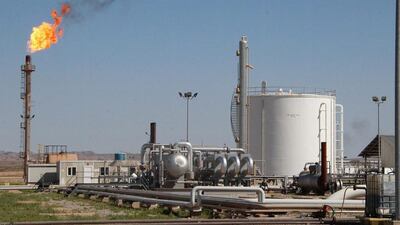Dana Gas (DG) made headlines last week with reports that is was announcing that its own sukuk were “unlawful”. It does seem a little bit surprising that a company would deem its own securities as unlawful. I mean, doesn’t that open DG up to liability for issuing the “unlawful” sukuk in the first place?
The discussion that followed was wide. Indeed, Bloomberg published one article with the title “Why everyone’s talking about Dana Gas’s sukuk”, from which I capture some of these facets. One is how DG’s actions would affect the whole sukuk market with Abdul Kadir Hussain, the head of fixed-income asset management at Arqaam Capital, quoted as saying [not paying coupons because the instrument is not Sharia-compliant is] “something that has a much wider implication for the sukuk market in general”. The implication appears to be that the apparent manoeuvre by DG to invalidate its own sukuk on Sharia non-compliance grounds harms the whole Islamic finance sector. Indeed, Mr Hussain is further quoted in the article as saying “… clearly the company is trying to squeeze sukuk holders to the benefit of shareholders and that is a strategy that will end up hurting everybody down the road”.
If this analysis is correct, it could have a detrimental effect on Dubai’s goal of becoming the Global Centre for Islamic Finance.
The National quotes a lawyer representing the sukuk holders: "From the perspective of Dana bondholders and capital markets investors generally, it seems regrettable that the company has decided to refute a structure the company itself endorsed as Sharia-law complaint, ignore the English law provisions which govern the claims of bond holders, and embark upon costly multi-jurisdictional litigation which poses a serious threat to the entire sukuk market."
The view by the lawyer is that DG did not act professionally.
In an attempt to find public information that might support or oppose this idea I took to the news, I found a Bloomberg report from May 3 that revealing that DG was going to start restructuring talks on these same sukuk. About six weeks later, DG announces that it “discovered” that the sukuk are “unlawful”.
How exactly did this happen? Did DG randomly ask lawyers to review its bonds to see if they were “unlawful”? Why would DG, which admits it has cashflow problems, pay money for a random review? Or was the review directed? DG could easily answer this question by instructing its lawyers to answer in public: were they instructed to find a problem?
As I tried to find out more about DG, I looked at its share price. As an example, on June 1 the share price closed at Dh0.44 and on June 15 it closed at Dh0.73, an incredible 66 per cent increase in two weeks. Why is this incredible? For three reasons. First, a 66 per cent price increase in two weeks is incredible on general principles. Second, the company had already announced that it needed to restructure its bonds as it was having cashflow issues, which would normally be considered negative news. Third, creditors usually rank higher than equity investors in terms of priority of financial claims, so if there were problems with the sukuk that should mean that there would be at least the same level of problems with the equity, if not more.
It is difficult to understand how debt securities get suspended and potentially forcibly liquidated but equity securities are allowed to continue to trade.
From a purely logical point of view, one possible reason that the share price would shoot up at that speed is if (1) someone had inside information regarding DG’s legal moves, and (2) said person believed that the creditors’ rights would be made subordinate to the rights of the shareholders. This does not bode well as a 19-per-cent shareholder in DG is represented on the board of DG by the chairman and at least one other director.
To try and ensure the good names of every party involved, not least that of the nation, this point should be clarified and the Securities and Commodities Authority (SCA) as well as Abu Dhabi Security Exchange’s (ADX) market operations and surveillance department could be helpful in letting the global financial community know that nothing untoward has taken place.
The country worked hard to be included in the MSCI Emerging Markets index, let’s not allow it to all go to waste because of a lack of transparency.
The news reports on this issue do not present a salutary picture. It is difficult to understand how DG went from “discovering” the “unlawful” nature of the sukuk to getting injunctions in at least two jurisdictions without actually managing its communications. When DG acts in this way, it does not only potentially harm DG’s creditors but every investor in the UAE and indeed the whole financial system.
This reminds me of the first half of William Butler Yeats' celebrated poem The Second Coming:
Turning and turning in the widening gyre
The falcon cannot hear the falconer;
Things fall apart; the centre cannot hold;
Mere anarchy is loosed upon the world,
The blood-dimmed tide is loosed, and everywhere
The ceremony of innocence is drowned;
The best lack all conviction, while the worst
Are full of passionate intensity.
My conviction lies with the SCA and ADX.
Sabah Al Binali is an active investor and entrepreneurial leader with a track record of growing companies in the Mena region. You can read more of his thoughts at al-binali.com.
business@thenational.ae
Follow The National's Business section on Twitter

